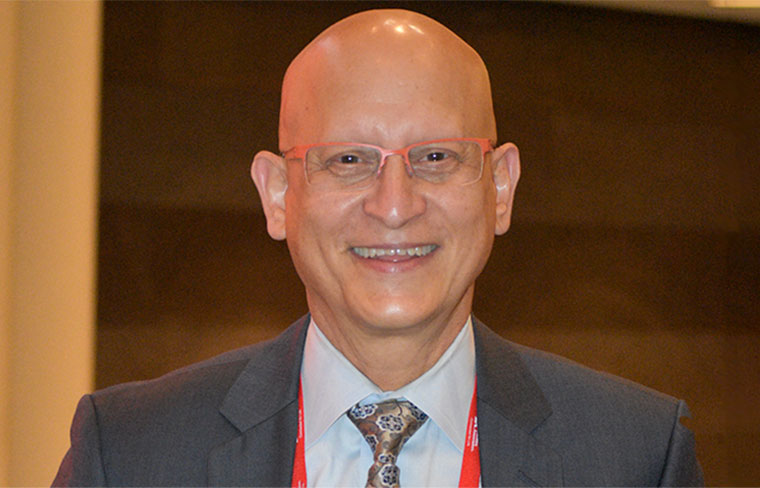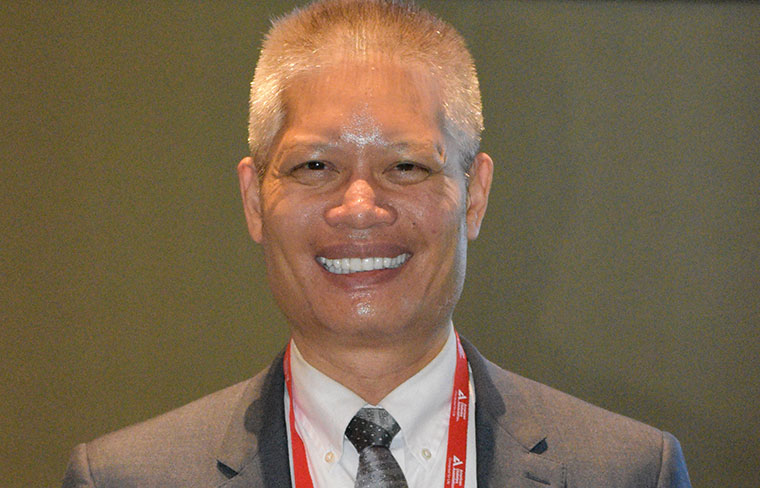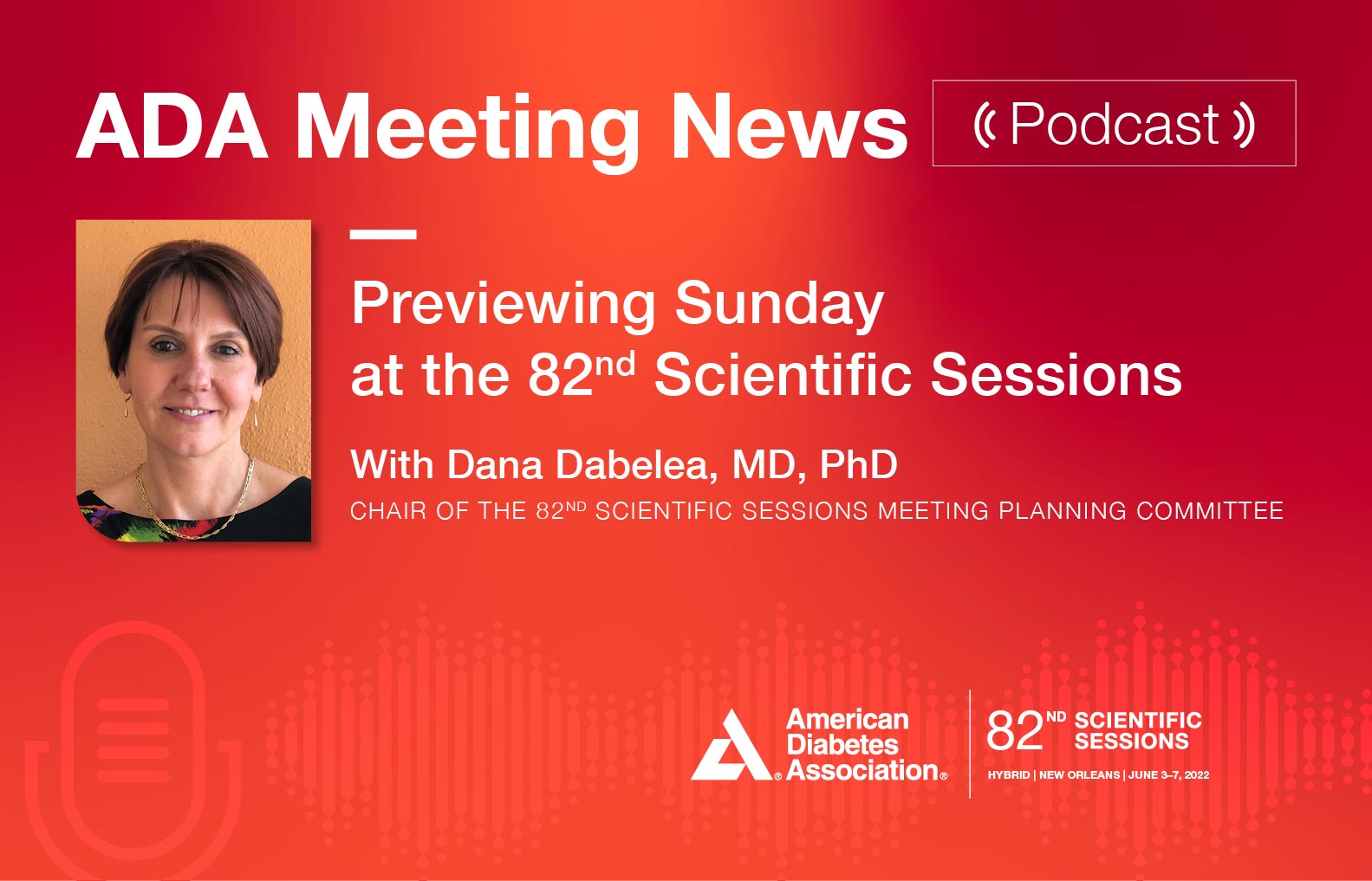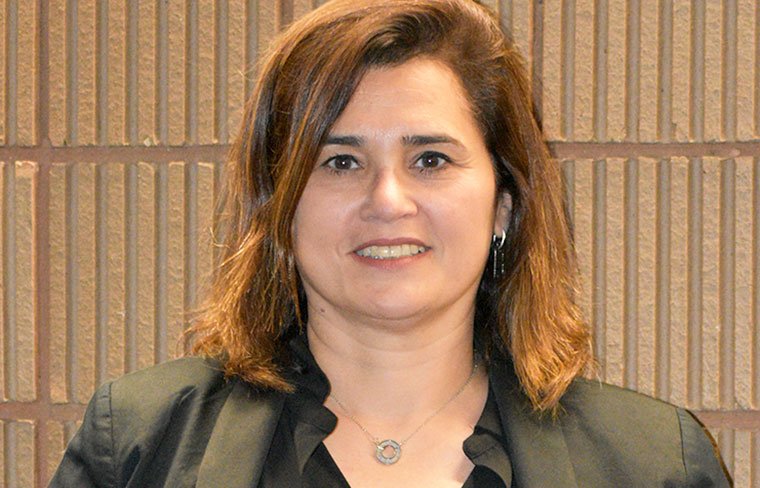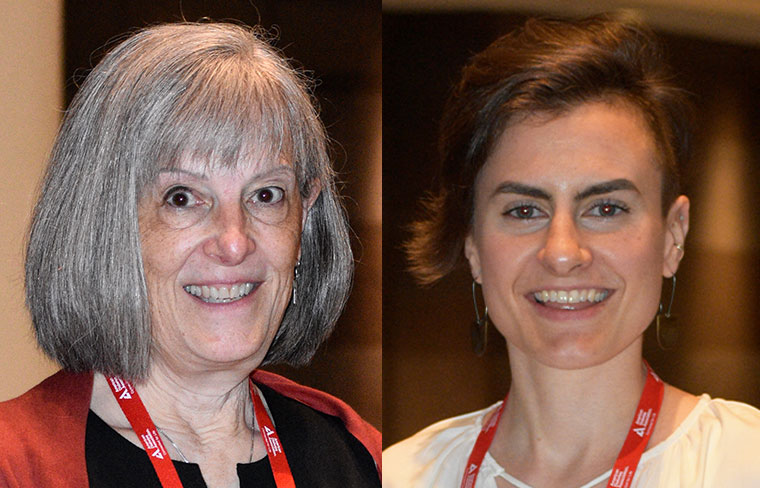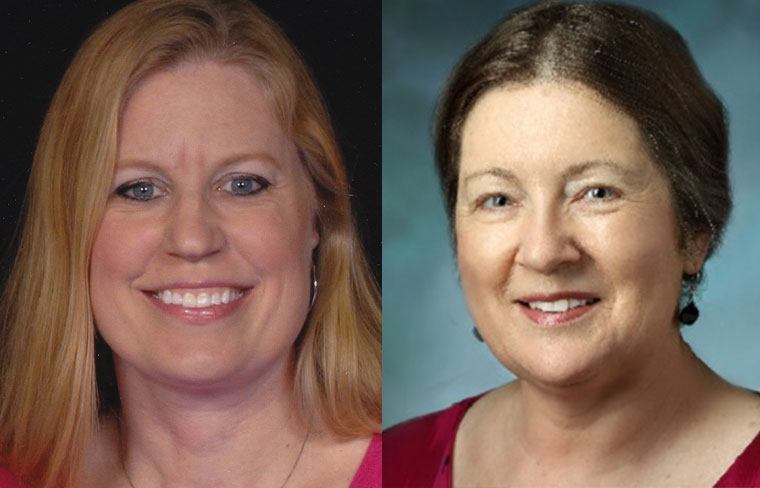-
Exercise scientists discuss how health disparities and sex differences impact physical activity
Physical activity is an integral part of the diabetes management toolbox, but not everyone responds to physical activity the same way or has the ability to exercise regularly. A panel of exercise scientists, including Carlos Crespo, PhD, examined how health disparities and sex differences impact physical activity during a morning symposium on Saturday, June 4.
-
Diverse panel of experts discusses role of race and racism in diabetes
During an afternoon symposium on Friday, June 3, a diverse interprofessional panel of experts—including an epidemiologist, a health services researcher, a historian, and a medical anthropologist—shared their work and insights on the role of race and racism in diabetes research and diabetes care. “Implicit bias training alone does not work in terms of being sustainable.…
-
Episode 3: Looking Ahead to Sunday at the 82nd Scientific Sessions
In the third episode of the new ADA Meeting News podcast series, Chair of the 82nd Scientific Sessions Meeting Planning Committee Dana Dabelea, MD, PhD, sits down with host Nick Gerik to preview Sunday’s program and highlight key events taking place outside the session rooms.
-
New eating and insulin-dosing strategies designed to control postprandial glucose spikes
Four experts, including Satish K. Garg, MD, and Holly Willis, PhD, RDN, CDCES, will discuss practical strategies to improve eating habits and optimize the growing number of insulin-dosing options to improve glucose control, increase time in range, reduce A1C, and lower the risk of long-term complications from poor glucose control.
-
Experts will discuss strategies to reduce treatment disparities in the LGBTQ community
Jamie Feldman, MD, will chair a Scientific Sessions symposium examining diabetes, metabolic health, and clinical care among people who are lesbian, gay, bisexual, transgender, gender diverse, queer, or questioning.
-
Presenters take a critical look at diabetes through a health equity lens
The prevalence of diagnosed and undiagnosed diabetes ranges from 17.4% of African Americans to 13.6% of White Non-Hispanic Americans, but the outcomes are far different. Nationwide, Black people with diabetes are 2.2-fold more likely to die than White people, according to Joshua J. Joseph, MD, MPH, FAHA.
-
Multidisciplinary panel discusses cardiovascular, renal, metabolic outcomes in diabetes
During a Friday afternoon session, an interprofessional panel of experts provided their perspectives and reviewed some of the most current literature on improving outcomes across the cardio-renal-metabolic spectrum of diabetes. “In the tsunami of diabetes, multidisciplinary, interdisciplinary therapy is essential if we are going to continue to improve outcomes,” said Neda Rasouli, MD.
-
Dietitians tackle top nutrition controversies
Alison Evert, MS, RDN, CDCES (left), and Maureen Chomko, RD, CDCES, addressed several nutrition controversies—from net carbs to fad diets to meal and snack frequency—during a mini-symposium on the first day of the 82nd Scientific Sessions.
-
Pair of afternoon sessions will review updates to DSMES national standards and CDCES certification program
Amy Hess-Fischl, MS, RDN, LDN, BC-ADM, CDCES (left), and Michelle F. Magee, MD, MB, BCh, LRCPSI, will review the updated national standards for diabetes self-management education and support. A companion session will outline the revised certification program for certified diabetes care and education specialists.
-
ADA, EASD teaming up to bring precision medicine to diabetes care
The ADA and the European Association for the Study of Diabetes published a consensus report on precision diabetes medicine in 2020. Scientific Sessions attendees will get an update on this joint initiative during a special symposium on Saturday, June 4. John M. Dennis, PhD (left), and David Kerr, MD, are two of the featured presenters.


